Why visit Portugal?
Medieval castles, paved villages, captivating cities and golden beaches: the Portugal experience can be many things. History, great food and peaceful scenery are just the beginning. You can pack an itinerary visiting palaces set above mist-covered woodlands, rocky cliff top castles and stunningly preserved medieval town centers.
The old-fashioned traditions of village life and Portugal's outstanding, very affordable seafood (especially percebes, cataplana and whatever is the fresh catch of the day, grilled up to perfection), makes of Portugal a great experience to travelers. Stunning views along the coast (from the hidden beaches in Parque Natural da Arrábida to the barren cliffs dotting the southwest shores), going for mountain treks in the Serra da Estrela, and wandering through the pretty towns of the Minho... Portugal is full of surprises.
Festivals pack Portugal’s calendar. Drink, dance and feast your way through all-night revelries like Lisbon’s Festa de Santo António or Porto’s Festa de São João. There are kick-up-your-heels country fairs in the hinterlands, and rock- and world-music fests all along the coast. Any time of year is right to hear the mournful music of fado in the Alfama, join the dance party in Bairro Alto or hit the bars in Porto, Coimbra and Lagos.
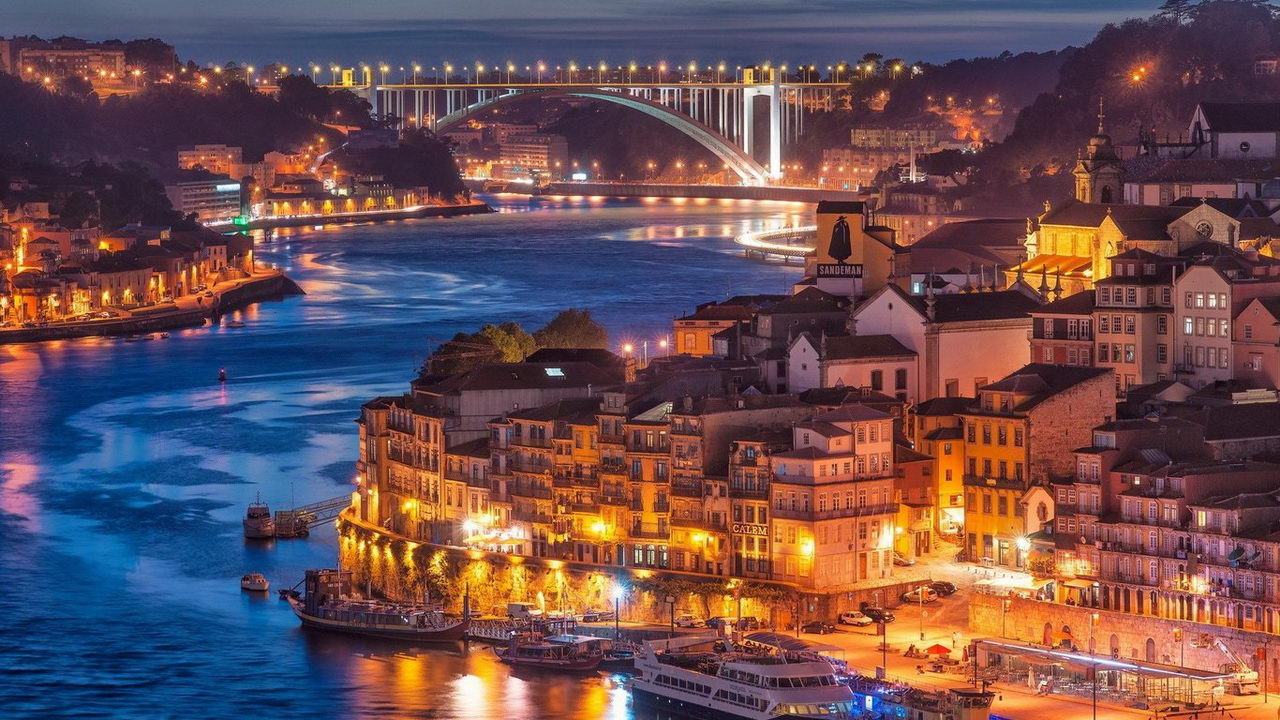
What does Portugal bring in mind?
|
Design and Fashion Museum The creations of top international names in fashion and design are presented in a permanent collection and in temporary exhibitions. Opened in 2009 in a former bank's headquarters, this is one of Lisbon's most surprising spaces, recognized as one of the world's leading design and fashion museums. |
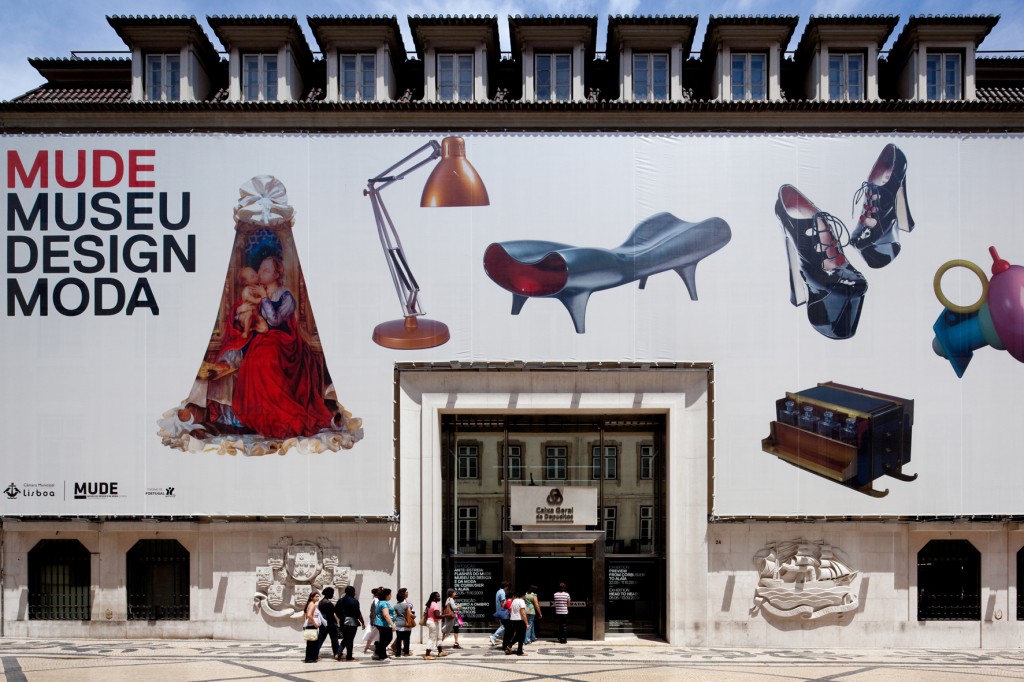 |
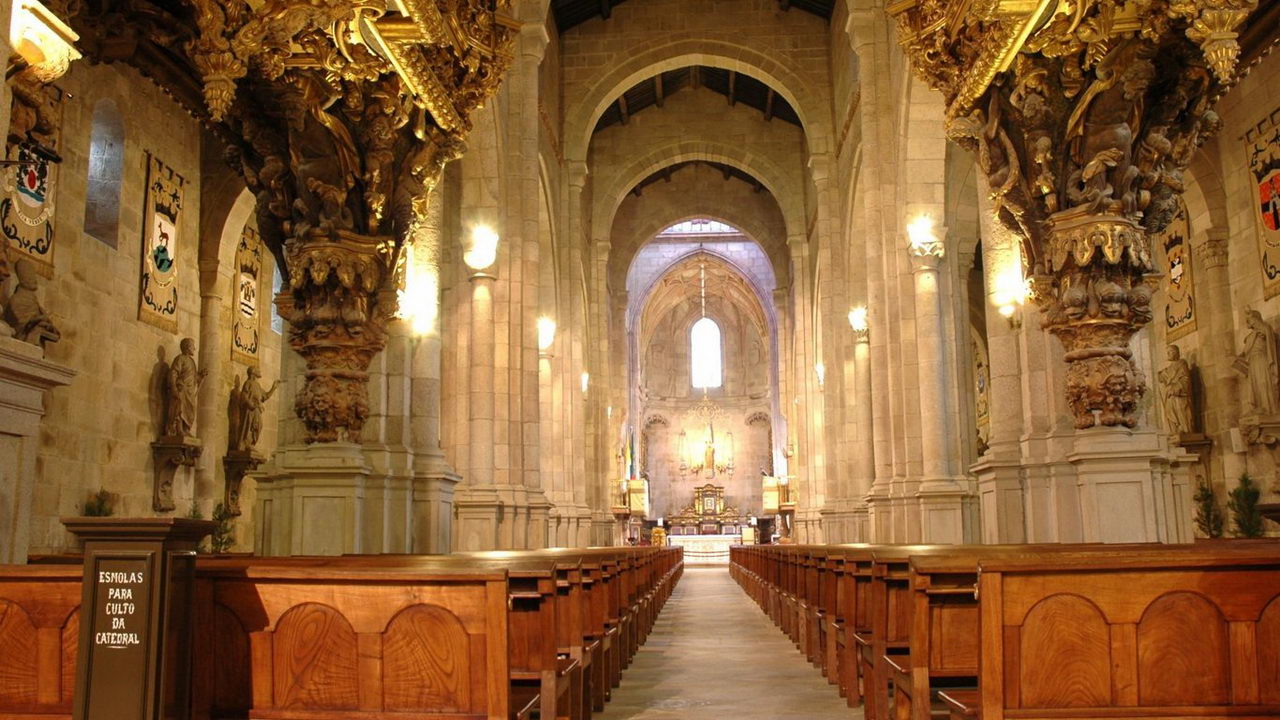 |
São Roque Church - The World’s most expensive Chapel See what the gold found in colonial Brazil was able to pay for, hidden in the surprisingly rich São Roque Church. The Chapel of St. John the Baptist inside is a European masterpiece made in Rome for this Lisbon church, and to see more baroque magnificence head to Santa Catarina Church nearby. |
Berardo Museum
A Portuguese millionaire has put together one of Europe's greatest modern art collections which includes works by Andy Warhol, Picasso, and Dali among others.
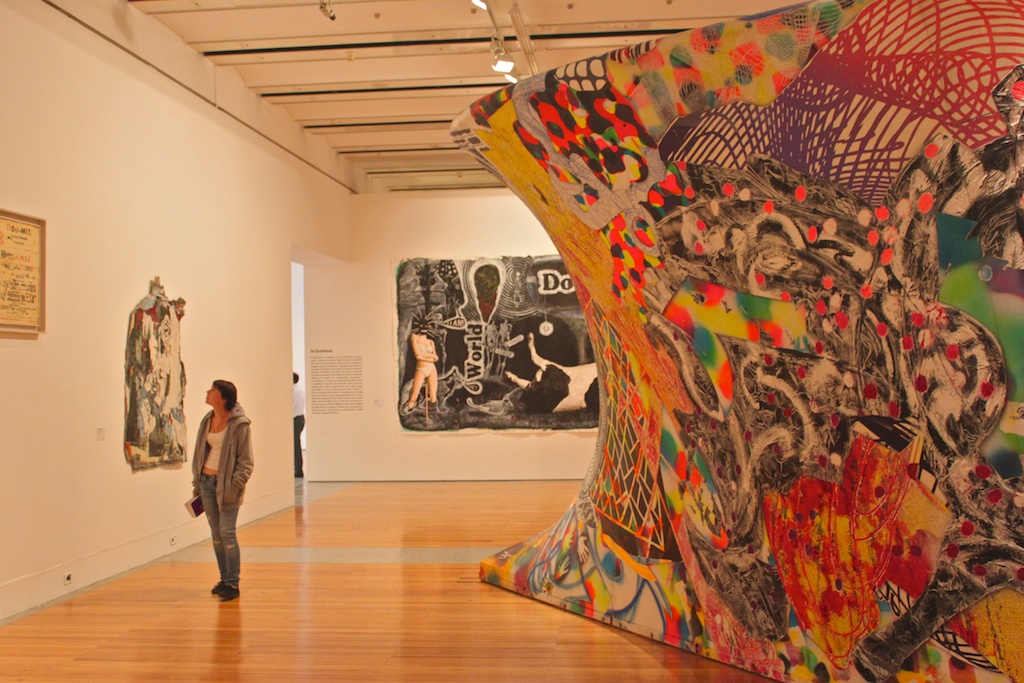
|
Parque Das Nacoes Contrasting with the city's oldest neighborhoods is this 21st century district showcasing striking contemporary architecture with Europe's longest bridge as the backdrop. It includes a state-of-the-art aquarium, a casino, and a wonderful waterfront promenade. |
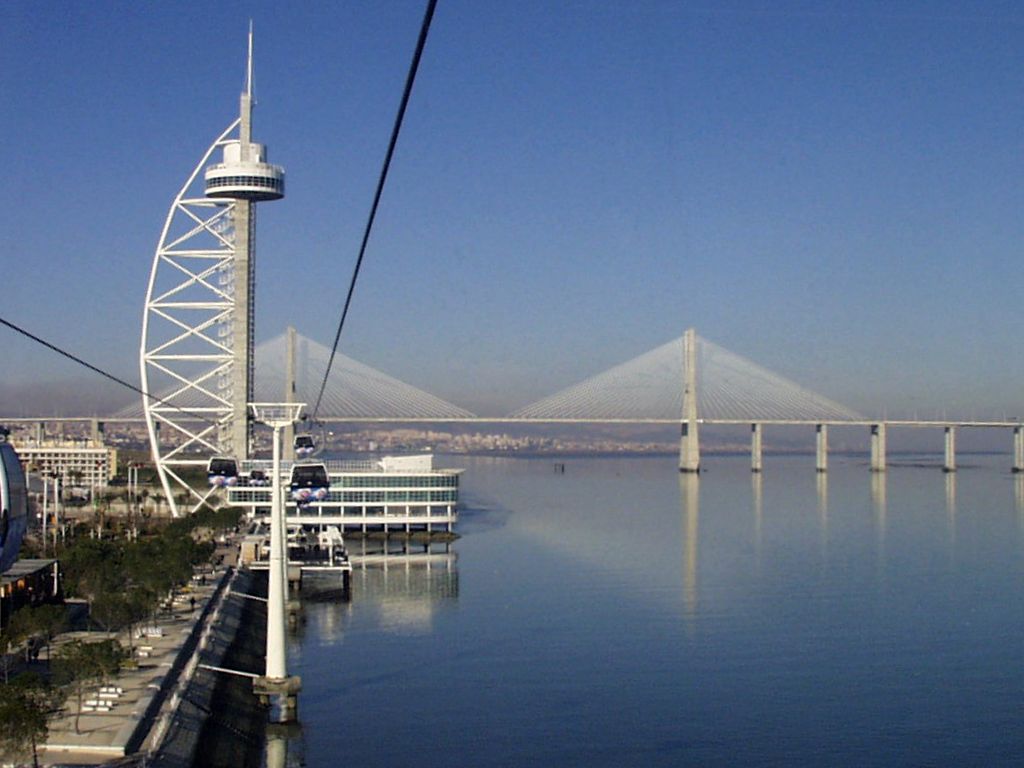 |
Calouste Gulbenkian Museum
Treasures from the East and the West collected by one man, is now one of the world's finest private art collections. It includes works by Rembrandt, Rubens, Monet and René Lalique.
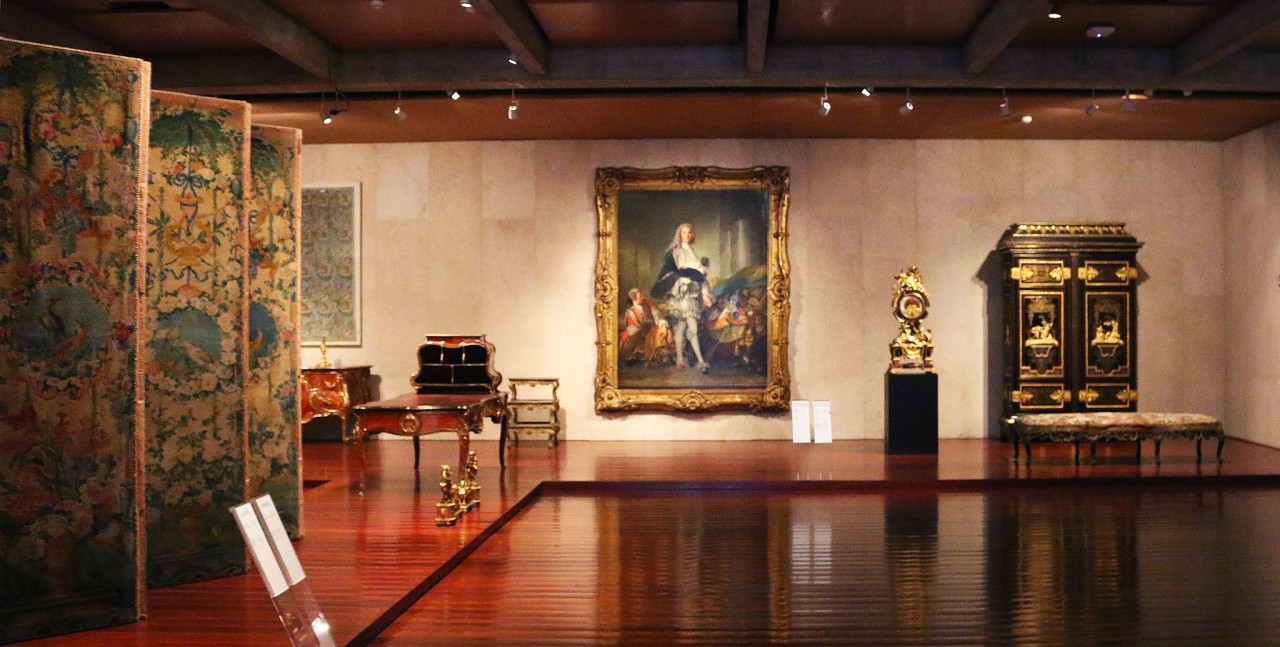
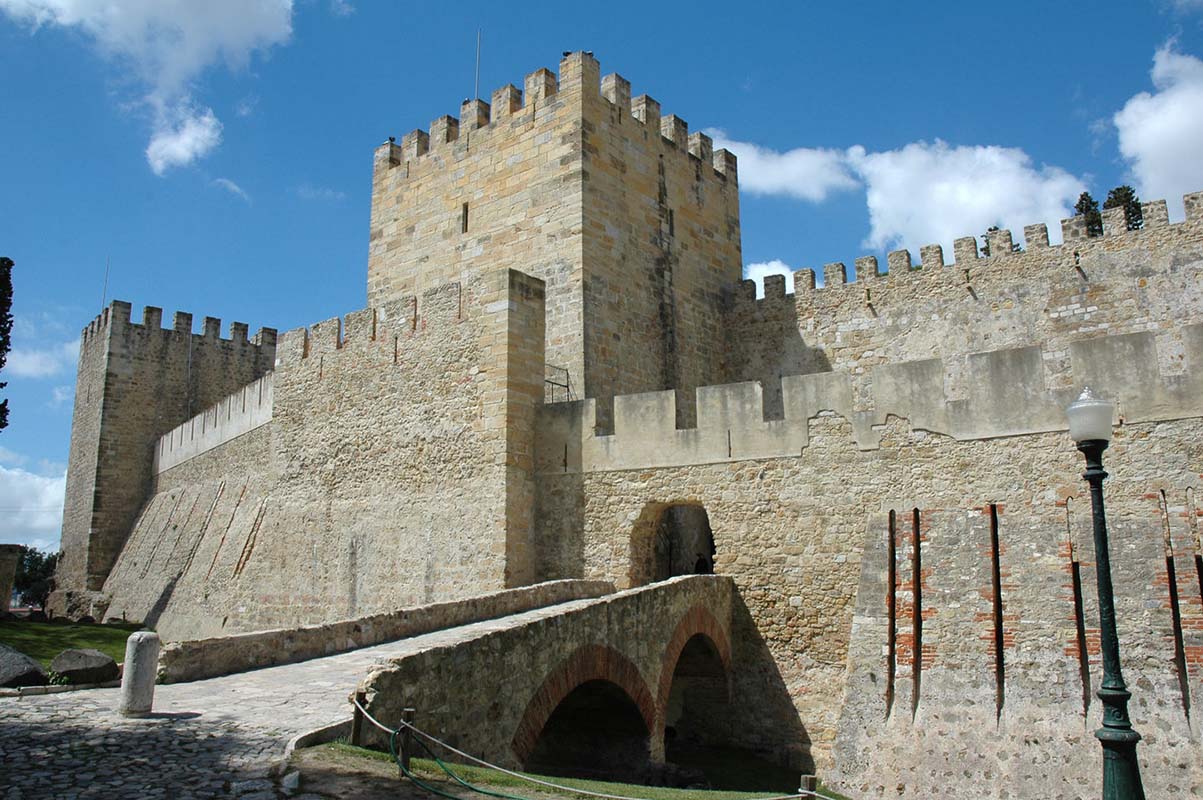 |
Saint George’s Castle From the millennium-old battlements of this castle, you have a bird's-eye view of the city in the company of roaming peacocks. Inside, is a small archaeological museum and down the hill are a couple of terraces with perfect postcard views over Alfama, the city's medieval village-like neighborhood. |
Jeronimos Monastery
The resting place of explorer Vasco Da Gama is a church built in the 1500s as part of a magnificent monastery; its walkways are considered among the most beautiful in the world and has been listed as a World Heritage Site.
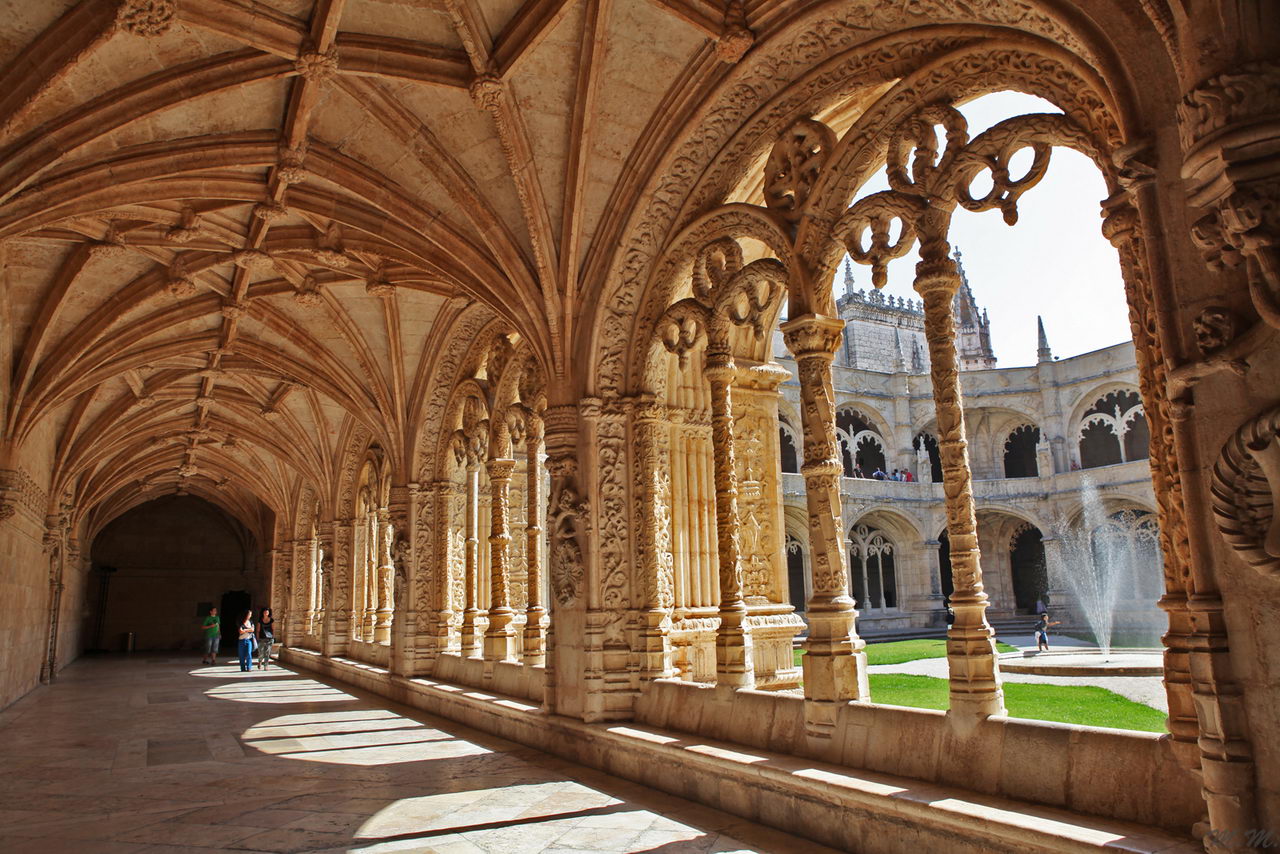
|
D. Maria II National Theater Where many plays were, and are, performed and seen by Kings and Queens, around the fountains used at the beginning of October to baptize the freshmen as they were about to enter the University, around the cafes frequented by famous Portuguese personalities, like Cafe Nicola founded in 1929. You can smell it in the freshly roasted chestnuts that have been sold in the Rossio Square for many years. |
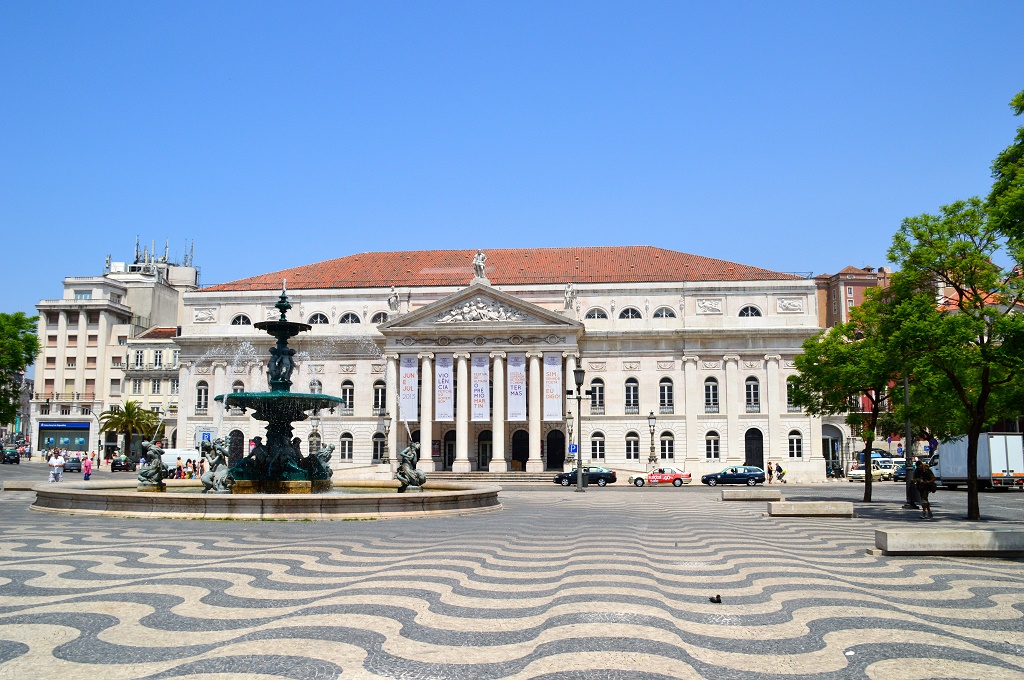 |
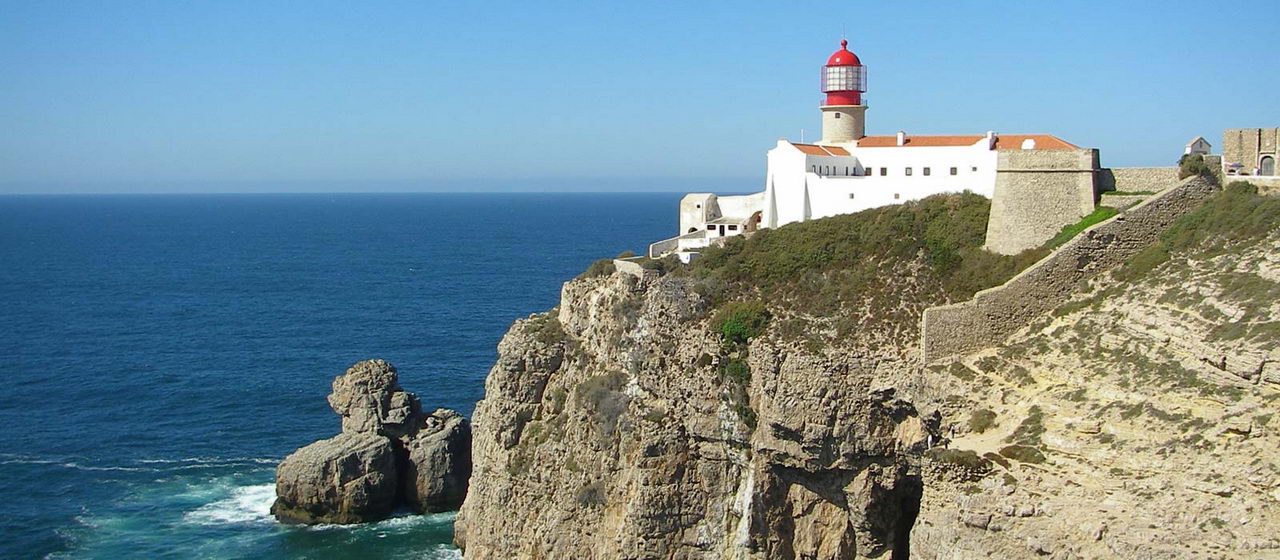 |
Fortaleza De Sagres A fortress built in the 15th century and generally thought to be the site of Prince Henry’s “School of Navigation” and Cape of São Vicente, one of the most westerly points of the European continent after Cabo da Roca. It was also a sacred place to the Romans who called it Promontorium Sacrum. |
Monte Da Pena
The palace was built on the site of an old monastery belonging to the Order of St. Jerome, based on the imagination of Dom Fernando of Saxe Coburg-Gotha, who married Queen Dona Maria II in 1836. After falling in love with Sintra, he decided to buy the convent and the surrounding land to build a summer palace for the royal family. The royal consort built the palace in a somewhat offbeat mixture of architectural styles, and in the surrounding area made a beautiful park in English style, with a variety of exotic trees.
The highlight of the interior of the palace is the chapel, with its magnificent alabaster altarpiece attributed to Nicolau Chanterenne, one of the architects of the Mosteiro dos Jerónimos. A restaurant has now been opened in one of the wings of the palace, with a terrace that offers a beautiful panoramic view of Serra de Sintra and the coast.
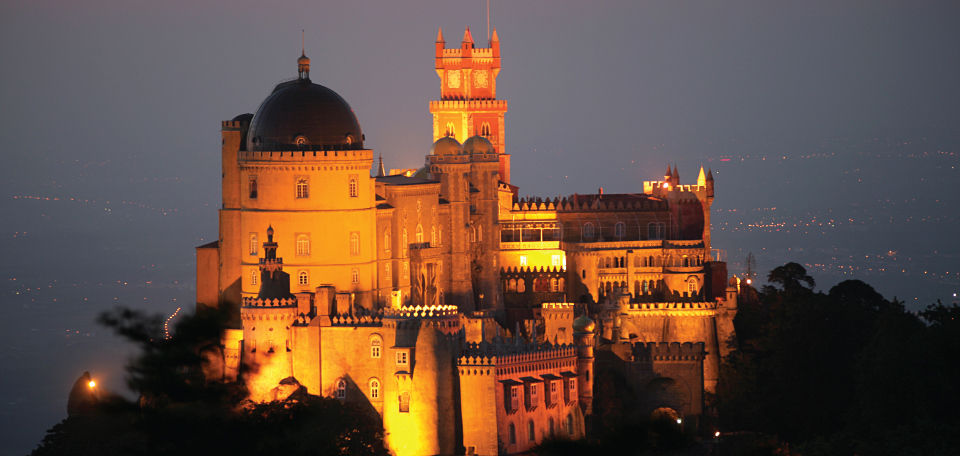
The Cais Da Ribeira
This riverfront is the center of the city center and the most picturesque part of Porto. The area has a mix of ancient narrow streets and narrower alleyways, with centuries-old buildings. Old homes of granite and tile loom over the waterfront, and the harbor is filled with Rabelo boats and river excursion ships. In 1996 the Cais de Ribeira area was named a World Heritage Site by UNESCO. The Cais da Ribeira is a romantic place that comes alive as the sun goes down, when the numerous cafés, bars and restaurants open. Couples stroll along the Douro, as the hint of music drifts from the bars and cafes, and the smell of coffee and grilled fish fills the air.
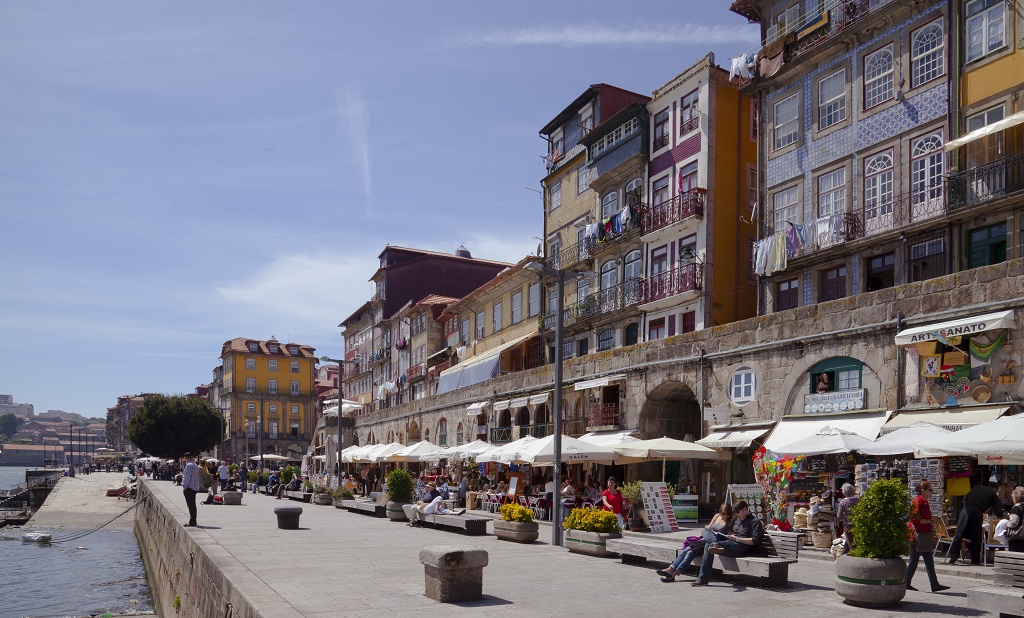
Things NOT to miss in Portugal
-
Shopping at El Corte Inglés Upscale Spanish-owned department store El Corte Inglés is renowned for its choice of leading designer fashion, with exclusive brands such as Carolina Herrera, Hugo Boss, Escada, Ralph Lauren and Burberry, among other labels, attracting the more discerning customer. Another alluring feature of El Corte Inglés is its Club del Gourmet stocked with ample and varied selections of homemade delicacies, vintage wines, whiskies and champagnes.
-
Eat at Mercado da Ribeira Lisbon's largest fish, fruit and vegetable market with around 35 kiosks incorporated into the largely iron framework, most of them providing an amazing variety of cuisine that's served hole-in-the-wall style so that diners can sit and eat at pinewood tables set in the middle of the market. Some of Lisbon's best-known restaurants have a presence along with shops such as Garrafeira Nacional, which only sells Portuguese wines.
-
Visit Oceanário de Lisboa One of Europe's best and largest oceanariums, containing a vast array of fish and marine animals.
-
Visit Torre de Belém One of Portugal's best-loved historic monuments and a Lisbon icon; the Torre de Belém stands as a symbol of the Age of Discovery and the voyages of exploration undertaken in the 15th and 16th centuries.
-
Contemplate Convento do Cristo, Tomar A mighty castle that shields the Convento do Cristo, one of Portugal's standout historic attractions. Founded in 1160 as the headquarters of the Order of the Knights Templar, the Convent of Christ is as awe- inspiring as it is mysterious. At its center is the medieval Charola, the original Templar church, richly decorated and displaying all the strange symbolism associated with the Order of Christ.
-
Attend Feira da Ladra
-
Visit Calouste Gulbenkian Museum
-
Chilling in Ribeira An atmospheric place on the river, buzzing in live music, cafes, restaurants and street vendors.
-
Winning at Ponte Dom Luis, a metal, double-deck arch bridge that links Porto to Vila Nova de Gaia, well-known for its port wine cellars.
Best cities of Portugal
Lisbon
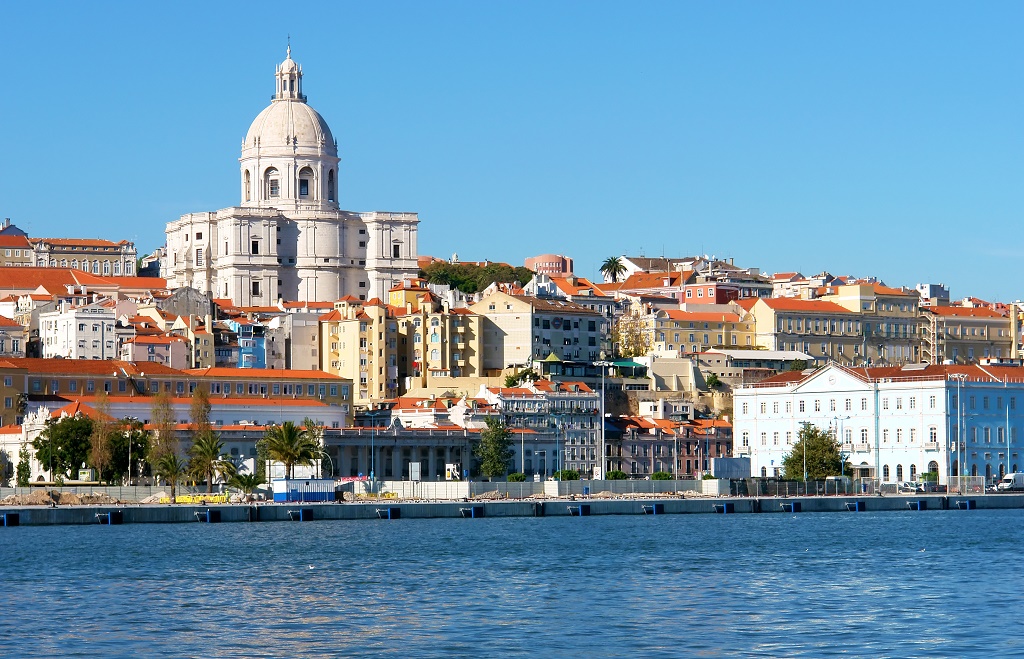
The Baixa, Lisbon’s downtown area, is still the traditional center of city life, and is where Lisbon’s oldest and traditional shops still exist. In this heart of the city, the streets that run parallel to Rua Augusta identify the various tradesmen and craftsmen, who have continued to do business there since the time of the Maritime Discoveries. You will find jeweler’s stores in the Rua do Ouro (Gold Street) and the Rua da Prata (Silver Street) and cloth and clothes stores in Rua dos Fanqueiros (Drapers’ Street).
Algarve
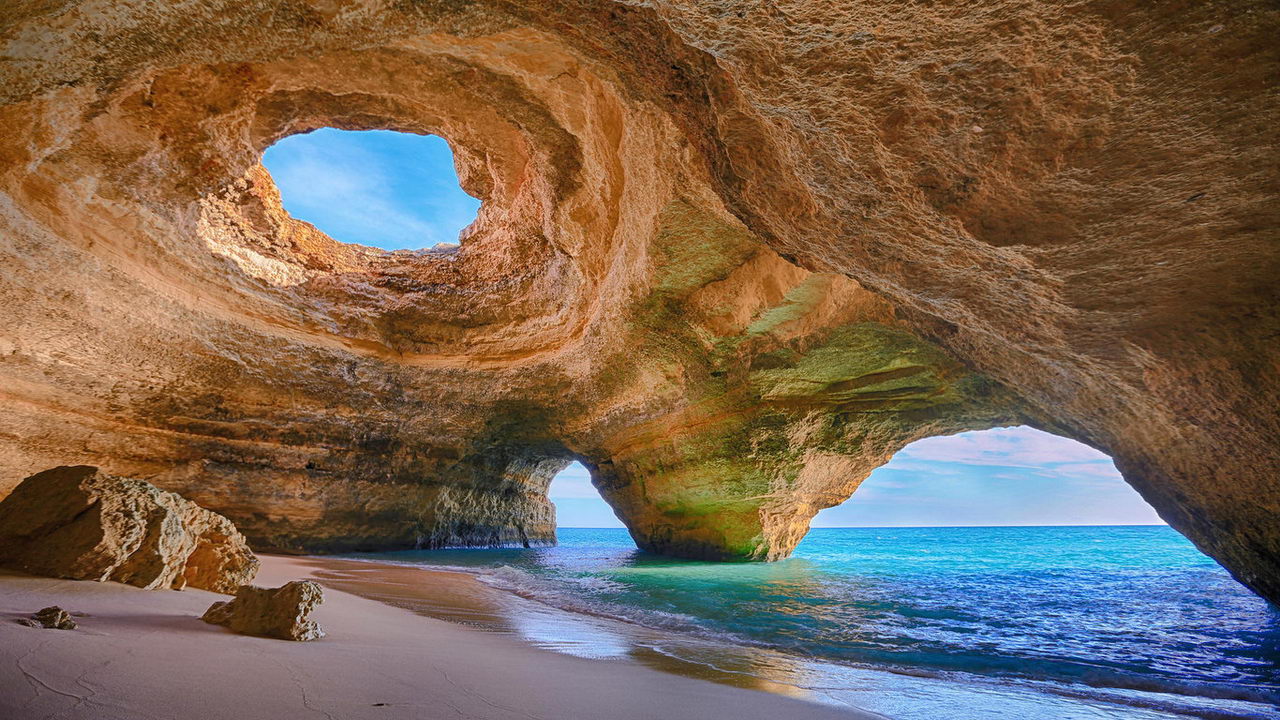
Sea, sun and sand mark Portugal’s famous Algarve. While the region’s beaches and picturesque villages have made it world renown, the region also has some world-renown golf courses. The area’s capital, Faro, remains nearly the same as it was in the 18th century, with its charming neighborhoods intact. A big draw for travelers here is also the region’s temperate climate which has little rainfall and sunlight almost the whole year round.
Lagos
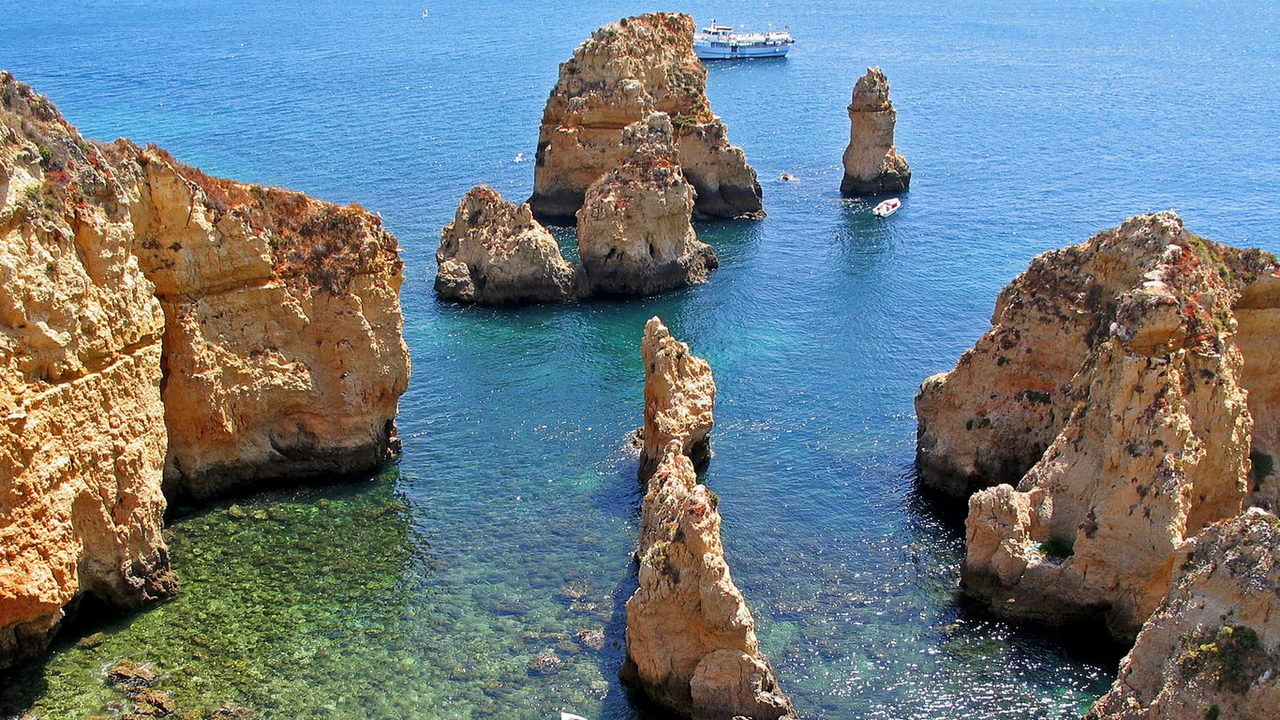
In between Sagres and Portimão, Lagos packs quite a punch for its small size in terms of beautiful beaches and vigorous nightlife. It is definitely a favorite spot in the Algarve and a place where to stay for an entire summer.
Porto
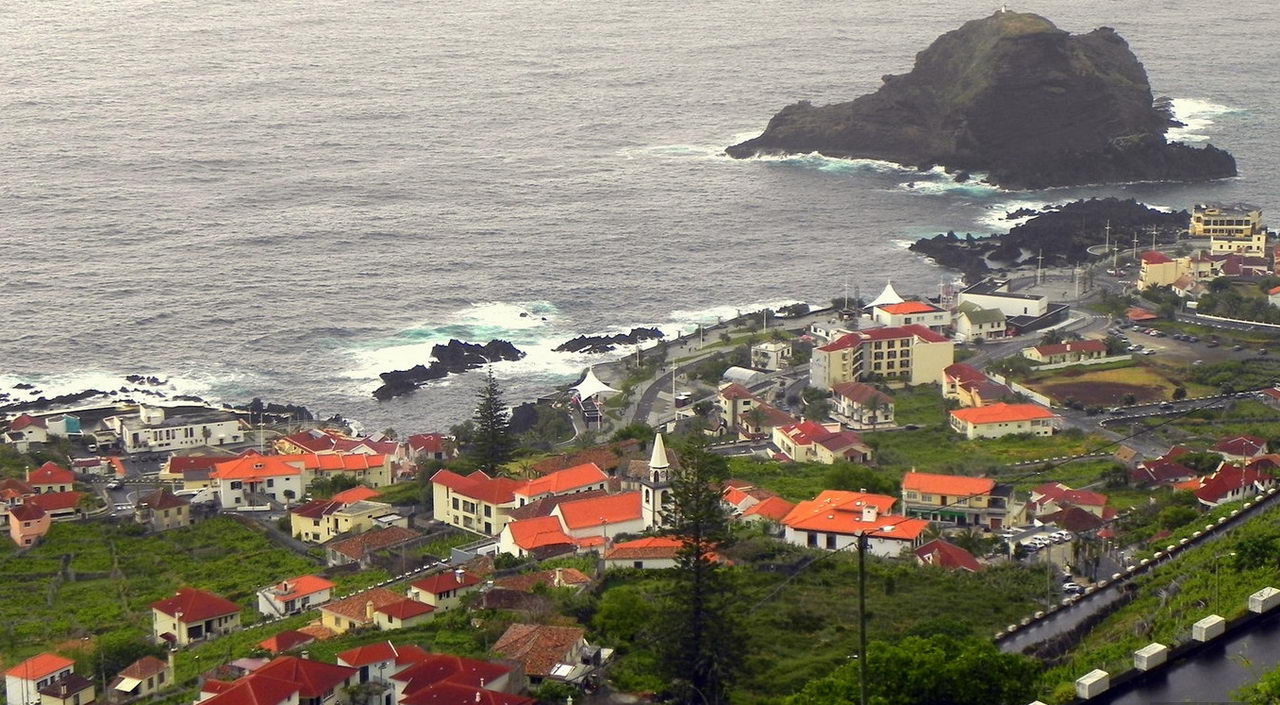
Capital and gateway to the north of Portugal, Porto is both the city that provided a nation with a name and a fortified wine known worldwide as port. With its splendid geographical location on the mouth of the Douro River and an architectural heritage of exceptional quality, the historic center of Porto was declared a UNESCO World Heritage in 1996.
Madeira
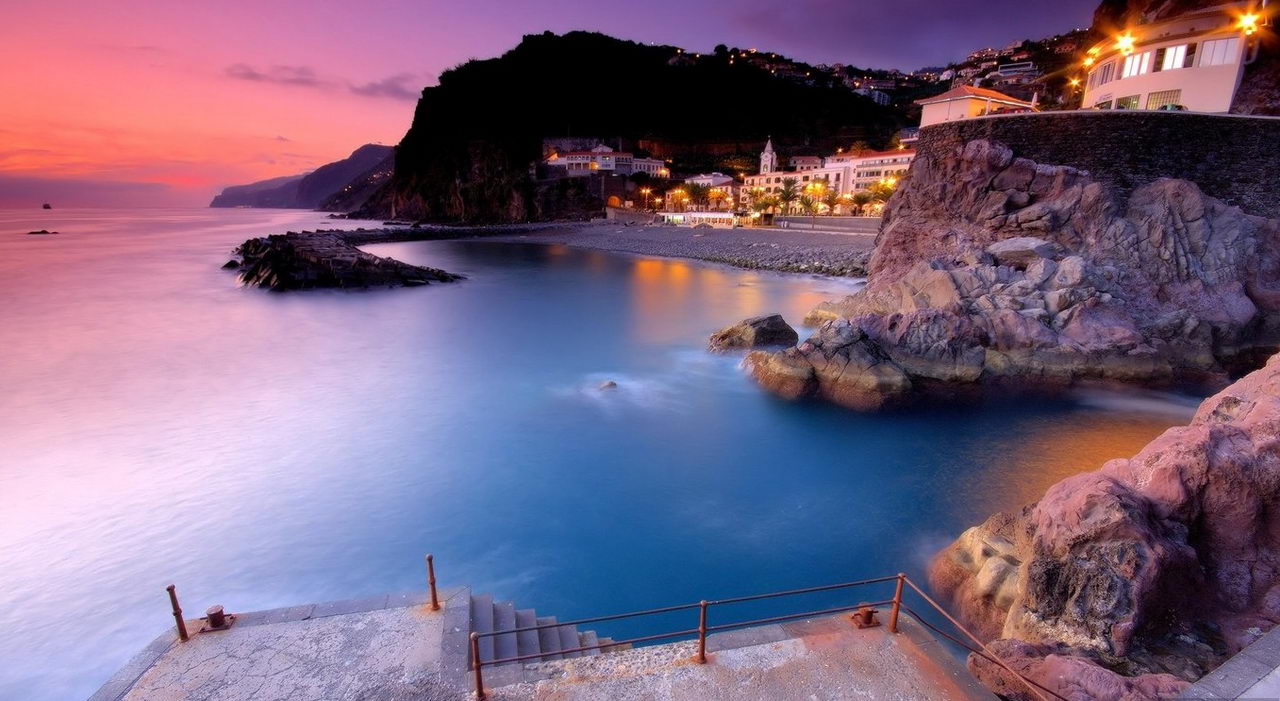
Out of all the stops you make while in Portugal, Madeira is the one that will surprise you the most. An island that feels more like a tropical island somewhere in the Caribbean than southern Europe. Its capital Funchal is quite cosmopolitan for island standards yet take a drive about 30 minutes to the north and you will find yourself in the middle of a UNESCO-protected laurel forest.
Portimão
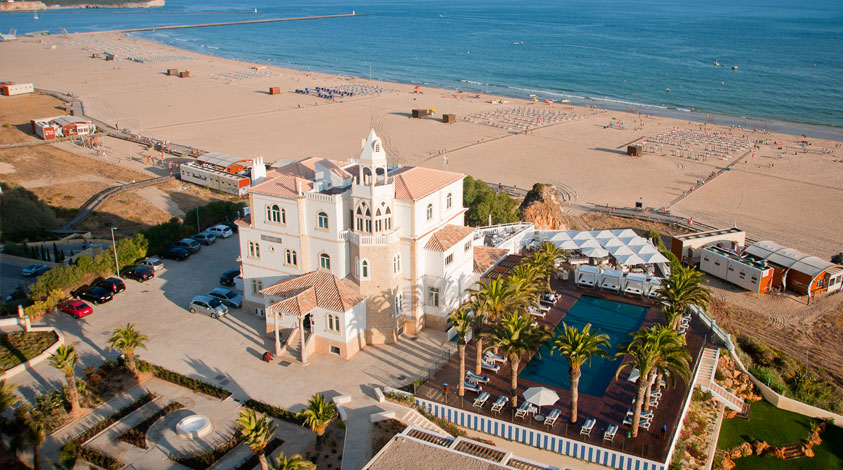
Just a little over an hour away from Faro by train is Portimão. Out of all the towns I visited in the South, this one felt like it was the most geared towards package holidaymakers. There isn’t much to see in the way of sights but Praia da Rocha, its most popular beach, more than made up for that with its seemingly endless stretch of golden sand.
Culture packages
Entering this website you automatically agree the following terms and conditions even if You are not a registered user of the site. Images shown on the website, country and travel specifications, as well as the webdesignes are subject to copyright protection, Elegant Enterprises are All rights reserved. Prohibited the website all or partial copy, store, use, distribution and sale, without the written consent of the copyright owner of this website (Elegant Enterprises)